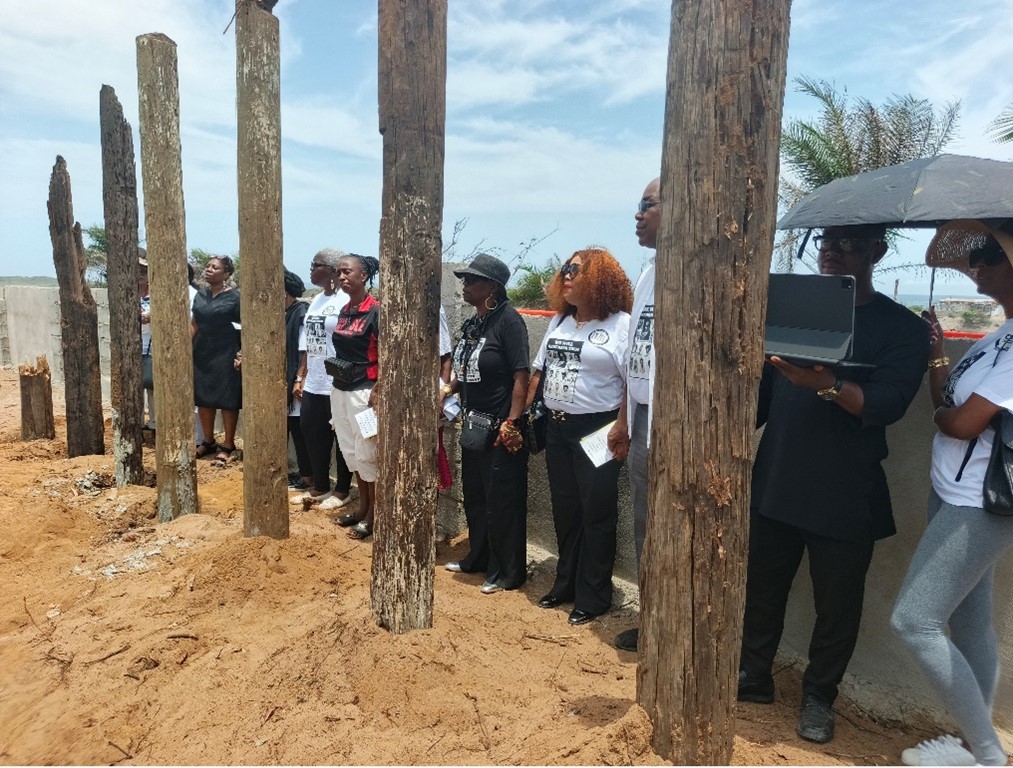The year 2025 marked the 45th anniversary of a pivotal and tragic event in Liberian history: the 1980 coup d’état that ousted President William R. Tolbert Jr. and resulted in the execution of thirteen government officials. On April 22nd, the April 22nd Memorial Group organized a poignant ceremony at the Liberia Baptist Theological Seminary in Paynesville City to commemorate the lives lost and reflect on the enduring impact of this national trauma. Family members, friends, and loved ones gathered to honor the memory of those who perished, engaging in symbolic acts of remembrance such as planting trees and memorial poles, and participating in a solemn roll call of the victims. The event served as a powerful reminder of the personal loss experienced by families and the broader societal consequences of the violent upheaval.
Cllr. Yvette Chesson-Wureh, a key figure within the April 22nd Memorial Group, delivered a moving address that acknowledged the profound grief carried by the families for over four decades. Emphasizing the human element of the tragedy, she reminded attendees that the thirteen executed officials were not merely political figures but fathers, brothers, uncles, and beloved family members. Chesson-Wureh also unveiled plans for a permanent memorial at the site, including a mausoleum and a memorial library slated for completion in 2026. This space is envisioned as a sanctuary for reflection, historical preservation, and the ongoing process of healing.
Chesson-Wureh’s remarks provided a historical context for the 1980 coup, challenging the narrative that it was a tribally motivated uprising. Instead, she characterized it as a class struggle targeting the ruling elite. She underscored the importance of learning from this dark chapter in Liberia’s history and emphasized the need to prevent such violence from ever recurring. The executions, she stated, were a blatant violation of Liberian law, and the memory of those lost should serve as a constant reminder of the importance of justice, the rule of law, and respect for human life.
The 45 years since the coup have witnessed significant changes both within Liberia and globally. Liberia itself endured brutal civil wars, claiming an estimated 250,000 lives, before witnessing the election of Ellen Johnson Sirleaf, Africa’s first female president. The country also battled the devastating Ebola outbreak. On the world stage, events such as the COVID-19 pandemic, ongoing geopolitical conflicts, and the rapid advancement of artificial intelligence have reshaped the global landscape. Yet, amidst these sweeping transformations, the pain of April 22, 1980, remains deeply etched in the hearts of those affected.
Beyond the immediate executions, the coup’s aftermath brought further suffering. Families were fractured, lives were uprooted, and many were forced into exile, becoming refugees scattered across the globe. Chesson-Wureh highlighted the dedication of those who chose to serve Liberia, even when presented with opportunities to abandon their homeland. She stressed the importance of forgiveness and reconciliation as part of the healing process, while simultaneously advocating for preserving the memory of the past to guide the future. “Our lineage will forgive, but we will not forget,” she declared, encapsulating the spirit of remembrance and the commitment to building a better Liberia.
The 2025 memorial ceremony served not only as a tribute to the fallen but also as a call for national introspection. It provided a platform for collective healing, a renewed commitment to historical accountability, and a revitalization of national purpose. By confronting the painful realities of the past, the event fostered a sense of hope for a future grounded in justice, the rule of law, and a dedication to better governance. The legacy of those lost on April 22, 1980, continues to inspire the ongoing pursuit of a more just and peaceful Liberia.


